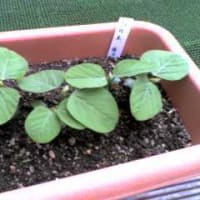In an adaptive immune response, naive T cells proliferate during infection and generate long-lived memory cells that undergo secondary expansion after a repeat encounter with the same pathogen. Although natural killer (NK) cells have traditionally been classified as cells of the innate immune system, they share many similarities with cytotoxic T lymphocytes. We use a mouse model of cytomegalovirus infection to show that, like T cells, NK cells bearing the virus-specific Ly49H receptor proliferate 100-fold in the spleen and 1,000-fold in the liver after infection. After a contraction phase, Ly49H-positive NK cells reside in lymphoid and non-lymphoid organs for several months. These self-renewing 'memory' NK cells rapidly degranulate and produce cytokines on reactivation. Adoptive transfer of these NK cells into naive animals followed by viral challenge results in a robust secondary expansion and protective immunity. These findings reveal properties of NK cells that were previously attributed only to cells of the adaptive immune system.
Nature 457, 557-561 (29 January 2009) | doi:10.1038/nature07665; Received 23 October 2008; Accepted 24 November 2008; Published online 11 January 2009
自然免疫と獲得免疫という概念が、分子生物学によって大きな変革を遂げるかもしれない。
胸腺でのクローン選択、記憶、寛容、ワクチン、クラススイッチなど免疫学の言語が、
遺伝子という分子生物学の言語を用いて翻訳されるときに、医学はパラダイムシフトを起こす。




















※コメント投稿者のブログIDはブログ作成者のみに通知されます